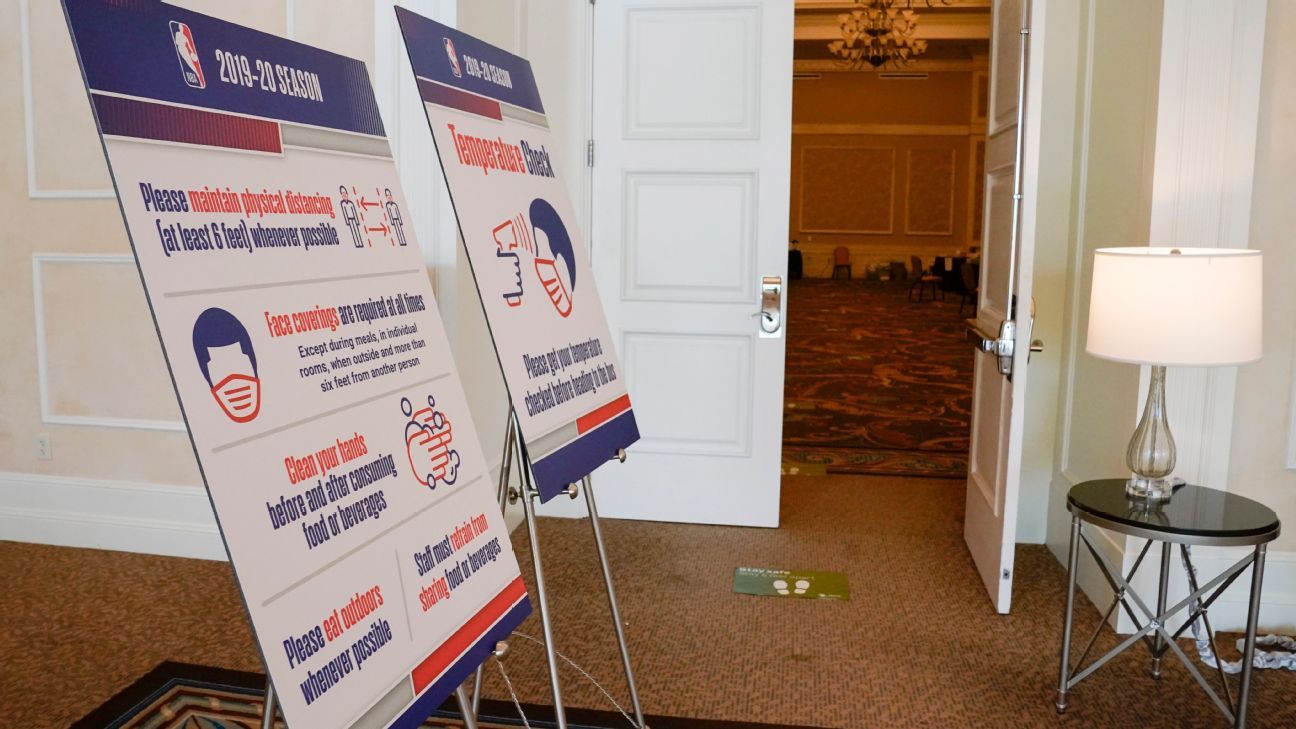Five of 789 professional athletes infected with COVID-19 were later found to have suffered inflammatory heart disease in the largest study to date on the cardiac impact of the virus in sports.
In data published Thursday in JAMA Cardiology, doctors affiliated with six U.S.-based leagues followed the 789 infected players last year between May and October.
Before returning to play, the athletes underwent three noninvasive tests that tracked heart rhythms, took an ultrasound of their hearts, and measured a protein in their blood that can be a signal of heart damage. Thirty athletes had abnormal test results and were referred for a cardiac MRI. Doctors diagnosed five cases of inflammatory heart disease (0.6% of the total), including three cases identified as myocarditis and two as pericarditis.
Dr. David Engel, a cardiologist at the Columbia University Irving Medical Center and one of the paper’s lead authors, said the results were in line with current assessments that cardiac injury from COVID-19 correlates with the severity of symptoms. The study incorporated infected athletes who were both symptomatic and asymptomatic. All five of the cases of cardiac illness included symptoms that “exceeded empirical definitions of mild COVID-19 illness,” according to the paper.
Doctors are still waiting for even larger datasets being compiled by the Big Ten athletic conference and the NCAA. Individual universities have published data from their own screenings with mixed results. An Ohio State University study made headlines in the fall, when researchers found that four out of 26 athletes — or 15% — had signs of myocarditis after COVID-19. A later University of Wisconsin study found just two cases out of 145 athletes.
Myocarditis is a rare but known effect of viral infections, including those that cause the common cold, H1N1 influenza or mononucleosis. Left undiagnosed and untreated, it can cause heart damage and sudden cardiac arrest, which can be fatal.
Concern about it and other heart ailments fueled initial debates about playing sports during the pandemic, especially last summer as it related to college football. Engel attributed part of those worries to confusion over how to interpret studies that used cardiac MRIs to identify illness.
The professional sports leagues who contributed data to the JAMA Cardiology paper — the NBA, WNBA, NFL, NHL, Major League Baseball and Major League Soccer — followed a standardized screening procedure recommended by the American College of Cardiology. It included blood tests, an electrocardiogram and a resting echocardiogram, or heart ultrasound. Further tests, and eventually diagnosis, were based on abnormalities from the initial screening.
“There was a lot of controversy about how to interpret these cardiac MRI studies and really what the meaning of these findings were,” Engel said. “This study had a very clinically-relevant approach. Patients who tested positive went through the recommended screening from the American College of Cardiology. It was only after there were abnormalities that we went on for further testing. Using this step-wise approach, we found what we considered to be clinically-relevant incidents of myocarditis and pericarditis to be quite low.”
Ten of the doctors involved in the study disclosed that they had received financial compensation or were employed by one of the leagues or associations involved. Engel is the NBA’s consulting cardiologist.
The five players diagnosed with heart conditions, who were not identified for the purposes of the study, were all subject to 3-6 months away from their sports and will continue to be tested to determine the longer-term effects of the illness on their physical condition. Moving forward, the American College of Cardiology has recommended eliminating screening for athletes who had asymptomatic or mild cases while maintaining the same screening process for those who had moderate or severe symptoms.
“What was reassuring is that all of the athletes who went through the screening, the 784 of 789, were able to achieve a safe return to play,” Engel said. “This was unknown. Early in the pandemic when these answers were not known … we were able to demonstrate that going through a rigorous and systematic approach to screening, we were able to achieve a safe return to play.”
In a joint statement, the six leagues said in part: “As with other lessons professional sports have learned about COVID-19, the results of this study are being shared broadly to continue to contribute to the growing body of knowledge about the virus — a commitment we collectively share with each other and our players for the benefit of society beyond sports.”
The study results appear to be good news for athletes who suffered from COVID-19, said co-author Dr. Jonathan Kim, a sports cardiologist at Emory University in Atlanta who also works as a team cardiologist for the Atlanta Falcons.
“All the four major sports are done with 2020, all of them ultimately returned to a season — including those athletes who were included in this registry — and some sports like the NBA now carried over into a new season,” Kim told Kaiser Health News. “Those athletes are obviously still playing and are doing OK.”
The study did not shed light on what might happen over the long term with those players who were diagnosed with heart inflammation. They will continue to be monitored with MRIs to see if the effects fade away with time.
“Only time will tell if, five years from now, we’ll have an epidemic of failed hearts,” said Dr. Robert Bonow, a cardiologist at Northwestern University and editor of JAMA Cardiology, who was not affiliated with the study. “But I think that is unlikely.”
Results of the two other forthcoming studies on the possible COVID-cardiac link are expected to be published soon, pending peer review.
ESPN’s Paula Lavigne and Mark Schlabach and Kaiser Health News reporter Markian Hawryluk contributed to this report.
